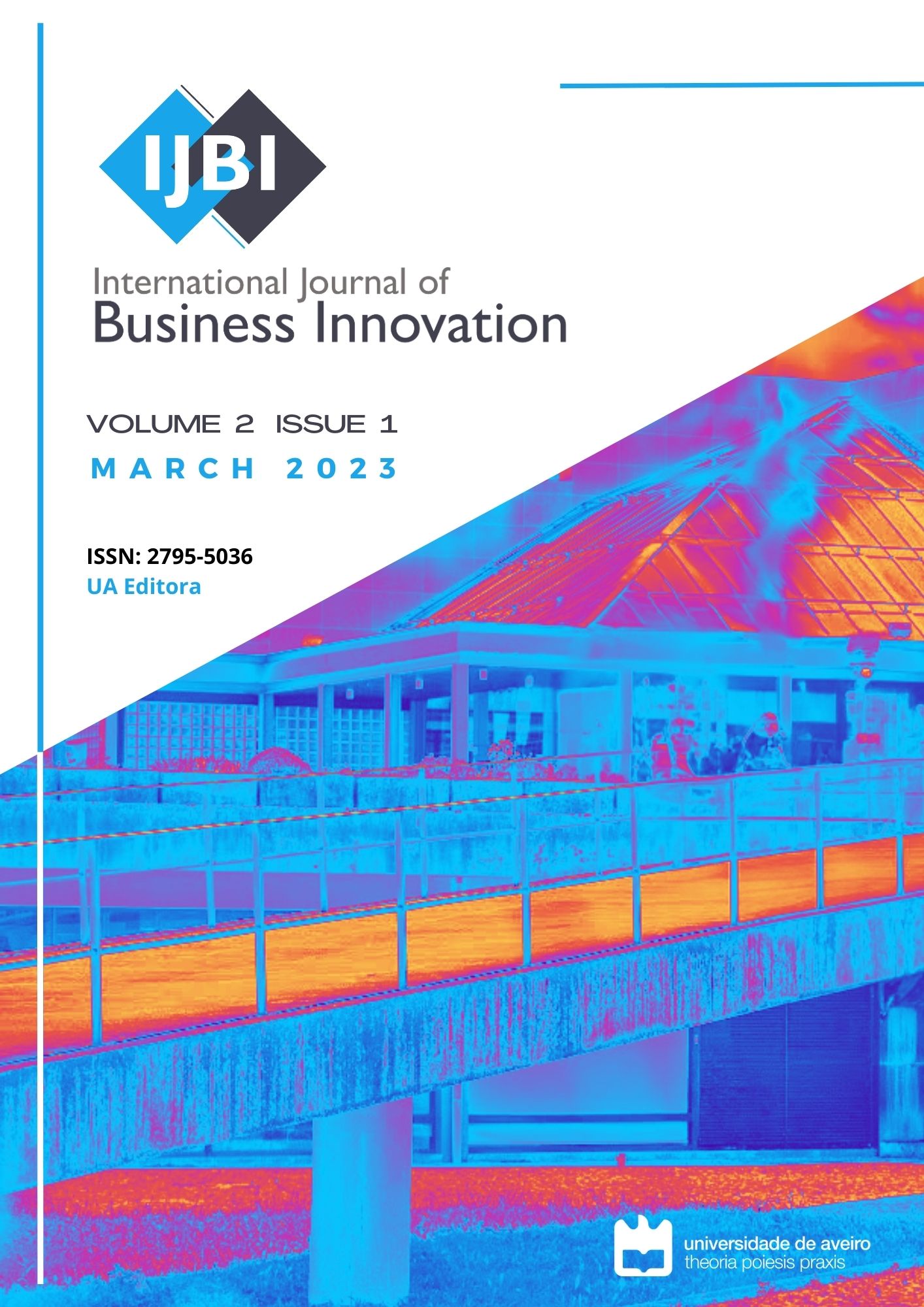Editorial
DOI:
https://doi.org/10.34624/ijbi.v2i1.31861Keywords:
editorialAbstract
With this issue, we begin the second volume of lnternational Journal of Business Innovation (IJBI). Also like this, we started another new stage of the journal. If the first volume is associated with the launch and promotion of the journal, this second volume is intended to be of consolidation. Consolidation and affirmation! In this volume, therefore, we intend to increase the number of submissions, thus reducing the acceptance rate and thus increasing the quality of published articles. Only then will it be possible to attract more authors and submissions, retain readers and enhance the journal in the international scientific community.
Another objective to be achieved during this second volume is the journal's indexing in more bibliographic databases and citation indexes. At the moment, the journal is already indexed in Google Scholar, in RCAAP - Open Access Scientific Repositories of Portugal and in Index Copernicus.
The volume begins with an issue made up of four articles, whose authors have geographically dispersed affiliations, that is, we have articles from Europe, Asia and South America, namely, from Portugal, Nepal and Brazil. In terms of content, the number is also quite contrasted, containing an article in each of the following sections: Finance, Management, Accounting and Technology & Information Systems.
The first article is titled “The Interaction Among Capital Structure, Dividend Policy and Ownership Structure: Evidence from the Iberian Markets" and is authored by Elisabete Vieira, Anabela Rocha and Cristina Miranda. This study explores the interrelationship among ownership structure, capital structure and dividend policy. This article is innovative and relevant because prior studies analyzed the capital structure or the dividend policy in isolation. Thus, this study uses a sample of Portuguese and Spanish listed firms, for the period between 1992 and 2016, employing panel data regression, as well as the two stage least squares (2SLS) and the three stage least squares (3SLS) in order to address for endogeneity issues. Among other outcomes, the authors conclude that managerial ownership and firms’ profitability have an impact on leverage.
Madhesh is a Nepalese province, consisting of 136 local governments in 8 districts. The current legislative context provisioned power to the federal, provincial, and local governments to enact necessary laws, policies and plans for local development. Thus, the article “Local Economic Development (LED) in Local Governments in Madhesh Province of Nepal” by Dev Raj Rai focuses aims to understand what municipalities have done and what can be the way forward for strengthening the local economy. The author states that 68% of businesses are unregistered and that the percentage of the LED budget is 5%, actual expenditure is 3%, and priority is 4%. Out of the LED budget, emphasis on the agriculture sector is high since municipalities have allocated 68% of the total LED budget to this sector. The author suggests municipalities should establish regular progress reviews because the achievements measurement system is lacking.
José Madureira and Carla Carvalho, in their article “Corporate Governance and Corporate Tax Management: A Bibliometric Study”, aim to analyze, through a bibliometric study, the evolution and dynamics of scientific production on the relationship between corporate governance and tax management. The study analysed 322 articles from Scopus and ISI Web of Science published between 1998 and 2021. This article is relevant because it contributes to the knowledge about the most studied tax management practices and the most related governance mechanisms, allowing the identification of clues for future research.
Finally, the article “Environmental Education and the Integral Development of Human Potential”, by José Roberto Paludo, is different from the other because it is based on the inductive method, starting from the readers' experiences. And, therefore, the article must be read and interpreted in the light of this difference, which, also for this reason, enriches this issue. The concepts of being social are presented and important issues are discussed, such as gender, respect, and tolerance; socio-educational issues such as gender identity and anti-racist practices articulated with environmental education and citizenship and establish connections between the macro and micro dimensions, for the integral development of the human being. It is intended to be provocative and move your willingness to insert yourself as a socio-environmental subject of transformation, especially in the school space, and that, from there, you expand with a change of behavior that is always open, acquiring and applying new knowledge.
Thank you for your interest in the IJBI.
References
Downloads
Published
Issue
Section
License
When submitting an article to the IJBI, authors certify the following clauses:
-
Originality and single submission– The contents presented in the article have not been published previously in whole or in part, and were not submitted or are not under active consideration elsewhere prior IJBI decision. The article must be authentic and does not contain plagiarism.
-
Authorship– All authors reviewed the article, agreed with its content, and agreed to its submission to the IJBI.
-
Conflicts of interest– Any conflict of interests must be declared. If authors have no declaration, it should be written (in the acknowledgments section): “The authors declare no conflict of interests”.
-
Ethics committee and informed consent(if applicable) – The research must be approved by an independent ethics committee and subjects gave their informed consent before they were enrolled in the study.
- Authors retain copyright and grant the journal the right of first publication with the work simultaneously licensed under a Creative Commons CC BY 4.0.



